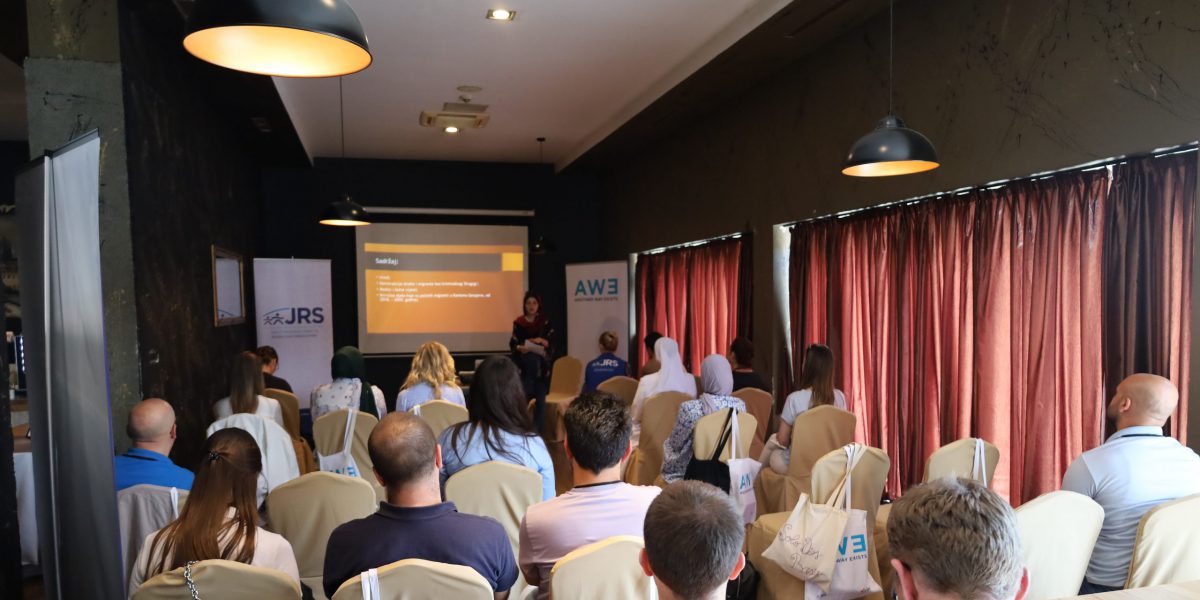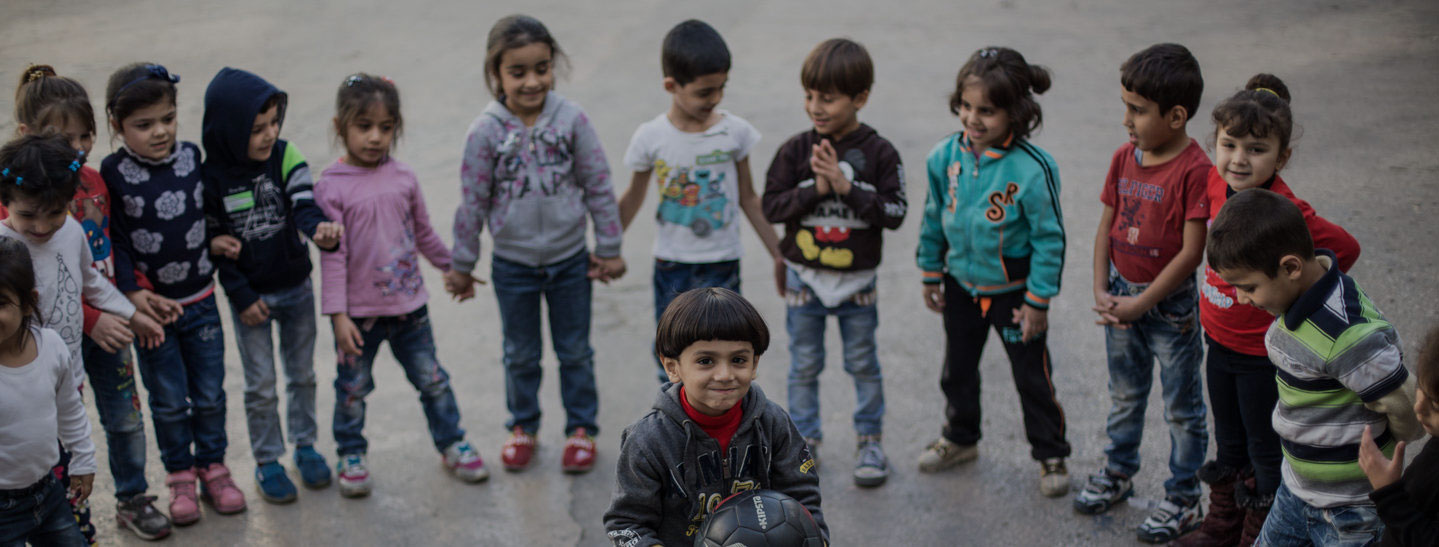The first training as part of the AWE project was held
05 July 2025

JRS Croatia implements the project of the Ministry of Foreign and European Affairs of the Republic of Croatia called AWE “Another way exists” in partnership with the offices of JRS Bosnia and Herzegovina, JRS Serbia and JRS Kosovo. Within 18 months of the duration of the project, our office will conduct training for governmental and non-governmental organizations and for the migrants themselves. Also, JRS Croatia will teach about alternatives to illegal migration and improving migration management systems based on its many years of experience and partnership with the European Union Agency for Asylum.
As part of this, from July 3 to 5, the first training was held in Bihać, where teams from Bosnia and Herzegovina, Serbia, Kosovo and Croatia gathered. Support for this project and the first meeting was given by representatives of the local authorities, specifically the advisor to the Prime Minister of the USK, Irma Aličajić, the Minister of Education, Science, Culture and Sports of the USK, Edvin Alijanović, USK Interior Minister, Božidar Živko, the representative of the SPS, Almin Imamović and the representative of the City of Bihać, Adnan Lipovača and representatives of partner organizations UNHCR, Caritas, IPSIA BIH, Put Nade, IOM and MdM in Bihać.
The aim of this first meeting was, through the lectures of Emina Hošić, Ana Marčinko, Amina Šurković and Marija Vujeva, to inform the gathered and encourage them to look at alternatives to the illegal migration management system.
The training was introduced by the Croatian Country Manager, Ana Marčinko, with an initial speech about the “AWE” project itself. Afterwards, Amina Šurković from the Bosnian office gave a lecture on “Criminalization of migrants, with a focus on Bosnia and Herzegovina”, during which she presented her mini-research on the record of criminal offenses by migrants in the period from 2018 to 2020. Among other things, Amina referred to the problem of the presence of “hate speech” against migrants in the public media, which is the practice of certain Bosnian portals, and the problem of the inertness of the state system for sanctioning violence against migrants. At Emina Hošić’s interactive workshop – Adequate responses to migrant needs, JRS offices united their forces to define all the ways in which JRS accompanies, serves and advocates migrant needs and tries to detect problems within the state framework that need to be changed for a better acceptance of migrants.
The second day of the meeting was marked by a lecture by External Associate of the project, Marija Vujeva on Alternatives to illegal migration, during which she spoke about safe migration pathways, specifically the practice of resettlement, transfer and complementary pathways such as humanitarian acceptance, family reunification, education and employment, which are examples of good practice in European countries for the legal acceptance of refugees, and some of them are especially successful in our neighboring country Italy.

